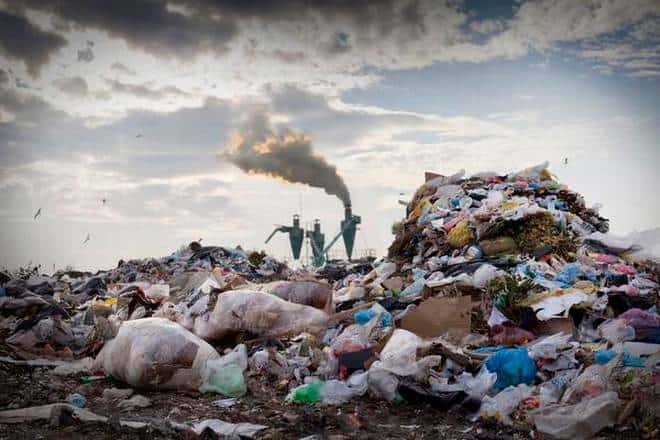Has the 2022 ban against single-use plastics been well thought-out?
Come July 2022 and the Indian government’s ban on single-use plastics (SUPs) will come into force. At least that’s what a recent announcement by the Union Ministry of Environment, Forest and Climate Change (MoEFCC) states. The Plastic Waste Management Amendment Rules, 2021, announced in August, state that 20 identified SUPs will be phased out by next year.
Although an ambitious and what some might even consider a welcome change to India’s snowballing plastic crisis, the announcement has brought with it several questions.
The ‘Report on Single Use Plastics’, worked on by an expert committee constituted by the Department of Chemicals and Petrochemicals (DCPC), has categorised plastic products based on their environmental impact and utility — those found to have the lowest utility and highest environmental impact are recommended for a phase-out. These include thin carry bags (less than 50 micron); non-woven carry bags and covers (less than 80 gsm and 320 microns); small wrapping/ packing films; straws/ stirrers; cutlery such as foam cups, bowls; earbuds with plastic sticks; cigarette filters; small plastic bottles; plastic banners; among other products.
Interestingly, the report also mentions that on examining bans and other restrictions on plastic products issued by various State governments and Union Territories, the expert committee ‘noted that the guidelines lack uniformity and vary widely in different parts of the country’.
Key loopholes
Where are the corporations? A cursory glance at the list highlighting the environmental adverse impact score of SUPs makes it evident that these are products being churned out by small and medium manufacturers. Larger corporations that mass-produced everything from furniture and bags to multi-layered packaging and bottles are missing.
Minderoo Foundation’s ‘Plastic Waste-Makers Index’, released earlier this year, reveals the companies that produce 90% of all SPU waste generated globally. The list includes Reliance Industries, GAIL India, Indian Oil Corporation, and Haldia Petrochemicals from India.
Packaging and EPR woes: Plastic packaging (flexible and rigid) contributes almost 60% of the total plastic waste generated, as a report from the Centre for Science and Environment finds. These include everyday products such as food wrappers, wrapping films, etc., but packaging waste hasn’t been listed for a phase-out.
The Plastic Waste Management Rules, 2016 had proposed for these to be collected and managed in an environmentally sustainable way through extended producer responsibility (EPR) of the producer, importer and brand owner (PIBO). ‘Five years later, the EPR for plastic waste management remains only on paper, due to non-compliance by PIBOs and weak enforcement by authorities,’ states Down to Earth. ‘The Ministry’s assumption that the PIBOs will start complying now is puzzling.’
The expert committee’s report backs this, and states that the EPR concept in India is largely connected with litter and other environmental issues but has not even begun to be implemented. This is yet another missing link in India’s plastic ban policy.
Busting the bio-plastic bubble: Next come the infamous ‘bio-plastics’ and other compostable, oxo-degradable and oxo-biodegradable plastics — primarily used for grocery bags or carry bags. While you may feel a tad better opting for these bags rather than polythene ones, how ‘sustainable’ or ‘plastic-free’ they really are is an altogether different story. Remember, not all bio and plant-based plastics are biodegradable, and not all ‘green’ or biodegradable plastics are bio-based.
In addition, they require separate composting facilities created with specific environmental conditions. The Report mentions that the conditions required for the decomposition of compostable bags do not exist in India’s municipal landfills. Most importantly, compostable plastic packaging is not a blanket solution, but rather one for specific, targeted applications as a majority of compostable plastics are more expensive than conventional plastics, and not available in sufficient quantities in India. The recycling process gets impacted when conventional and compostable plastics are mixed.
The informal workforce: According to the Federation of Indian Chamber of Commerce and Industry (FICCI), the plastics recycling industry in India employs over 1.6 million people and has more than 7,500 recycling units. It is a known fact that recycling has been managed by extremely small players, who employ elementary waste segregation processes and lack scientific know-how on waste collection, segregation, and disposal.
The plastic industry not only needs an upgradation of technology for mechanical recycling, as the Report mentions, but requires investing in educating these players, and providing them incentives to manage waste wisely.
Key in this list of players are the waste pickers — estimated to be between 1.5 million and 4 million. We need measures to improve the way they function. They need to be given ID cards, authorisations, incentives for their health, welfare, education, etc. If rules for source segregation and preventing the mix of plastics are enforced, it will go a long way in easing the lives of rag-pickers and making their job safer.
Worse, the pandemic has made the battle against plastic tougher — given the rise in PPE kits and disposable masks — but the war against SUPs has been going on for decades. Like every other segment of Indian society, we have the rules, but there is no implementation. The polluters continue to pollute, and the dump yards grow higher by the minute. Unless there is strong data to support which product needs to be banned and how to go about it, besides putting existing rules into effect, India’s plastic crisis will be far from over.
A fortnightly column on environmental sustainability and urban issues.
Packaging 360 is a comprehensive knowledge sharing ecosystem for the Indian packaging industry. Our services include an online content platform to deliver news, insights and case studies; organising conferences seminars and customised training; Providing Bespoke Project Consulting, Market Research and Intelligence.







